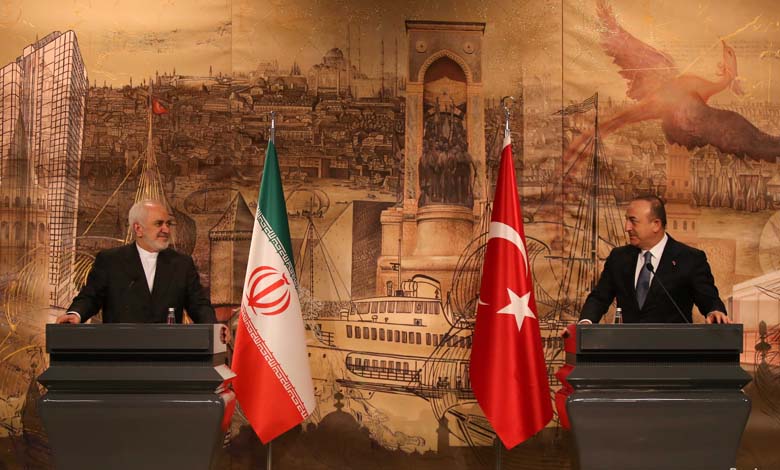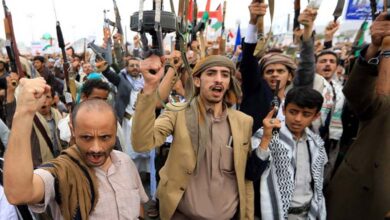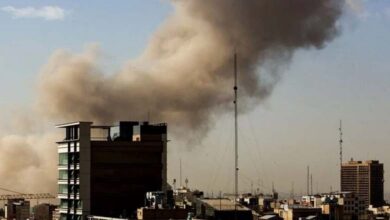Iran Seeks Development Path to Prevent Turkey from Dominating Iraq
Iran has studied the project from various aspects and is exploring the possibility of joining directly or finding ways to benefit from it indirectly

Iran has proposed to the Iraqi government to participate in the strategic Development Road project, which represents a gateway for regional powers, primarily Turkey, to compete with Tehran for influence in Iraq, which Iran does not intend to leave empty for Ankara.
During a meeting with Prime Minister Mohammed Shia’ Al-Sudani on Thursday, acting Iranian Foreign Minister Ali Bagheri expressed Iran’s support for Iraq’s efforts to implement the Development Road project and its readiness to contribute to it.
The new stance of Iran, which does not want to be excluded from the project, suggests that Tehran has studied the project thoroughly and is considering joining it directly or finding ways to benefit from it indirectly. This is especially significant as the project’s starting point in southern Iraq is very close to Iran’s geographical area.
Al-Sudani affirmed Iraq’s commitment to strengthening relations with Iran and consolidating constructive cooperation, achieving the interests of both neighboring countries and the prosperity of their peoples, according to a statement from Al-Sudani‘s office. The meeting also discussed regional and international situations, developments of the aggression in Gaza and its tragic humanitarian consequences, the daily crimes committed by occupation forces against the Palestinian people, and the necessity of serious international efforts to stop the aggression and avoid the expansion of conflict in the region.
There was also an emphasis on continuing joint committee meetings and effectively implementing the memorandums of understanding signed between the two countries in sectors such as energy, security, education, transport, and other vital economic fields.
Turkey, Iraq, Qatar, and the United Arab Emirates recently launched a new trade route connecting the Gulf to Europe, aiming to strengthen economic ties. This route, called the Development Road, is the latest economic corridor in the region following China’s Belt and Road Initiative and the India-Middle East-Europe Economic Corridor.
The project, which was finalized during Turkish President Recep Tayyip Erdogan‘s visit to Baghdad on April 22, is expected to cost $20 billion, with most financial support from Doha and Abu Dhabi.
Pro-Iran factions had preemptively expressed skepticism about the project, showing a negative stance despite the fact that the vast majority of Iraqi forces and figures consider it highly significant for diversifying the country’s income sources and providing jobs for its youth. The Al Sudani government views it as the most important achievement to its credit, being the largest development project undertaken in Iraq since 2003 and a true resumption of nearly halted development efforts since that time.
Abu Ali Al-Askari, the security official of Kata’ib Hezbollah, stated that “the so-called Development Road project remains a source of concern for us”. He added in a statement published on social media last May, “There must be definitive indications and strategic guarantees and more reassurances before starting the project”.
This stance seemed vague regarding the nature of the “concern,” whether it was security, economic, or otherwise. The ambiguity also extended to the nature of the indications, guarantees, and reassurances demanded by the militias and their authority to demand them from official entities.
Hassan Salem, a member of the Sadikun parliamentary bloc representing Asa’ib Ahl al-Haq militia led by Qais al-Khazali, had initially attacked the Development Road project when it was announced under the preliminary name “Dry Canal”. He said in a comment on the platform X that the project represents “a disgrace in the history of Iraqi politicians” and “another invoice that the Iraqi people pay because of a political class saturated with the virus of corruption that has made them unable to distinguish between harmful and beneficial”.
He later revealed the background of his highly negative stance on the project, which lies in defending a parallel project represented by China’s Silk Road. He stated in a statement that “the Dry Canal project is a killing and destruction of development in Iraq by preventing its inclusion in the Belt and Road Initiative, which some officials and advisors in the government and the Ministry of Transport deny, claiming that there is no Chinese agreement and that Iraq is not part of the Silk Road”.
-
Turkey Begins Arrangements for Erdogan’s Visit to Iraq
-
Washington and Ankara discuss improving relations after years of tension
Despite the MP’s overly enthusiastic stance, it seemed he acted hastily and did not coordinate his position with the leadership of the militia he represents in parliament. Qais al-Khazali, the leader of Asa’ib, is not known to oppose the Development Road project despite his close ties to Iran. On the contrary, he may support it as one of Al Sudani’s major allies and as a leader in the Coordination Framework, the main Shiite bloc forming the government.











